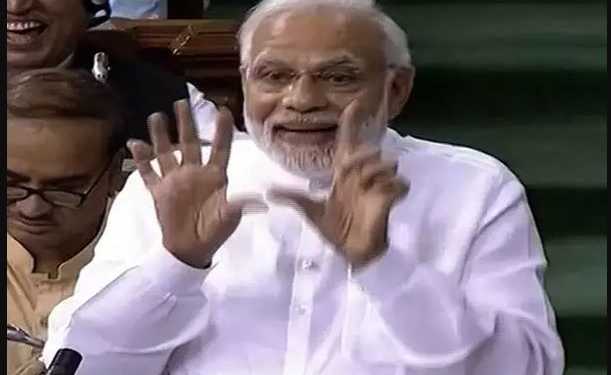The next big thing to happen in the Indian political spectrum is the 2019 Lok Sabha elections. There are many speculations regarding the timing of the elections and the two strong groups between which the elections will be fought. While the ruling Bharatiya Janata Party seems to be interested in clubbing the general elections with state elections to be held in 2019, some other parties are against it. This shows how sure BJP is of its prospects for 2019 and at the same time it also goes on to show how insecure the opposition in India really is. The insecurities of the opposition have got something to do with the way BJP has routed almost all of its opposition in the state elections. This has not only made the opposition fearful but has also made them lose confidence in the united opposition or mahagathbandhan as it was being called. The dissatisfaction has grown to such a level that regional parties like RJD from Bihar have challenged Congress president Rahul Gandhi’s candidature for the PM post.
In fact, the prime ministerial chair is the major bone of contention between the parties which wanted to fight the elections together against the BJP. From West Bengal CM Mamata Banerjee to NCP president Sharad Pawar and SP’s Mulayam Singh Yadav from Uttar Pradesh, everyone thinks of him/herself as the best suited candidate for the PM post. Every other week someone’s name is proposed and then he/she is given the cold shoulder by the other parties involved. Mamata Banerjee was made to sit in the second row at the swearing in of Karnataka CM H.D. Kumaraswamy while leaders from the Congress and other regional parties occupied the first row. This was a subtle way of making Mamata Banerjee understand that she should not forget her place. Her candidature for the post has come under more threat following her reaction on the NRC draft, the backlash from the common public in Assam and West Bengal has made her situation even more delicate. Mulayam Singh Yadav and Sharad Pawar currently do not enjoy the power position which they once had in their states. Rahul Gandhi and Congress are themselves in no position to claim the candidature. Lack of consensus between the parties is another big cause of worry, even if a common ground is achieved regarding the PM candidate there are other troubles waiting in line.
Sharing of seats will be the biggest point of contention if the united opposition wishes to contest elections together. Congress is the only true national party in the united opposition, all the other parties influence are restricted to just 2 to 3 states. While Congress would rightfully demand the lion’s share of seats in each state, the regional parties would be unwilling to let go. Considering the recent losses faced by the Congress, the regional parties would not want to make their position delicate in the state by offering seats to Congress. There would also be the added disadvantage of two former enemies now having to contest with each other, parties like SP and BSP in Uttar Pradesh have fought against each other for the past many years. In case of a grand coalition not only will they have to risk sharing seats with their long-time enemies but would also have to face the irk of their dissatisfied leaders whose seats they would have to sacrifice.
BJP along with its coalition parties of the NDA will benefit immensely from the recent support it has managed to get from AIADMK, TRS and BJD in the Rajya Sabha Deputy Chairman elections. These are favorable signs for the ruling party which would welcome the opportunity to increase the influence of the BJP in states like Tamil Nadu, Telangana and Odisha. Support from these regional parties will not only make the NDA stronger than ever before but would also make them sure of their success in the 2019 Lok Sabha elections. Clubbing of the general elections with state elections would further help BJP as there are no second doubts about PM Modi’s candidature for 2019 as well. With a face clearly on the front of the campaign, the coalition parties will also benefit immensely in the number of votes polled in their favor. On the other hand, an Anti-Modi campaign will hurt the opposition more, recent election results from the length and breadth of India have shown that the popularity of the incumbent PM is at an all time high. The NRC final draft has given hope to the entire north-east and West Bengal, in the other states too BJP’s popularity is at its peak. A campaign directed towards maligning the BJP leaders would be no use at all to the opposition. Even if a consensus is reached between the mahagathbandhan there still is the gigantic task of finalizing the winnability of the candidates, another hugely disappointing factor for the opposition. If these things are taken into account it can safely be assumed that a united coalition is highly unlikely on the cards, 2019 might once again be fought along the lines of 2014 as there is a huge dissent between the members of the opposition and it will show.




























